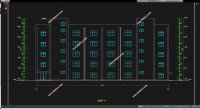六层12000平米舟山市某机械厂厂房钢框架结构设计(含建筑图结构图)(开题报告,论文计算书21000字,CAD建筑图7张,CAD结构图10张)
摘要
在建筑物结构设计中,框架结构常被作为一个重要且标准的型式而采用。它适用于低层、多层建筑物,亦可用于超高层建筑物。同剪力墙结构相比,这种结构更适合在建筑物的内部或者外围的墙体上开设规则孔洞。同时它还能充分利用建筑物内在任何情况下都要采用的梁和柱的刚度,但当柱子与梁刚性连接时,通过框架受弯来抵抗水平和竖向荷载会使这些柱子的承载能力变得更大。
大多情况下,框架的刚度不如剪力墙,因此对于细长的建筑物将会出现过度变形。但正是因为其柔性,使得其与剪力墙结构相比具有更大的延性,因而地震荷载下不易发生事故。例如,如果框架局部出现超应力时,那么其延性就会允许整个结构出现倒塌事故。因此,框架结构常被视为最好的高层抗震结构。另一方面,设计得好的剪力墙结构也不可能倒塌。
当然,还可以在建筑结构设计中,将框架结构和剪力墙结构结合起来使用。例如,在房屋建筑上使用框架,而在其中可以使用剪力墙。对于很多多高层建筑,如果墙体和筒架进行合理地安排与连接,会起到很好的抵抗侧向荷载的作用。还要求由这些结构体系提供的刚度在各个方向上应大体对称。
关键词:结构设计 框架结构 钢框
Abstract
In the design of architectural buildings , rigid-frame systems have been accepted as an important and standard means . They are the same with low and medium buildings for designing buildings . They are employed for low- and medium up to high-rise building .Compared to shear-wall systems , these rigid frames both within and at the outside of a buildings . They also make use of the stiffness in beams and columns that are required for the buildings in any case , but the columns are made stronger when rigidly connected to resist the lateral as well as vertical forces though frame bending .
Frequently , rigid frames will not be as stiff as shear-wall construction , and therefore may produce excessive deflections for the more slender high-rise buildings designs . But because of this flexibility , they are often considered as being more ductile and thus less susceptible to catastrophic earthquake failure when compared with ( some ) shear-wall designs . For example , if over stressing occurs at certain portions of a steel rigid frame , ductility will allow the structure as a whole to deflect a little more , but it will by no means collapse even under a much larger force than expected on the structure . For this reason , rigid-frame construction is considered by some to be a “best”seismic-resisting type for high-rise steel buildings . On the other hand ,it is also unlikely that a well-designed share-wall system would collapse.
Of course , it is also possible to combine rigid-frame construction with shear-wall systems in one buildings ,For example , the buildings geometry may be such that rigid frames can be used in one direction while shear walls may be used in the other direction。
【Keyword】: the structure design ; Frame structure ;Steel structure
1.1 工程概况
本毕业设计题目为实际工程应用课题,工程名称为舟山市某机械厂厂房(方案2),总建筑面积约12000m2,地上5层,建筑总高度为27.0m,采用多层钢框架结构,建筑结构安全等级为二级,建筑设计合理年限为50年,地基基础设计等级为丙级,建筑抗震设防类别为标准设防类(丙类)。
本设计为舟山市某机械厂厂房(方案2),要求设计成主体为5层的钢框架结构,抗震设防烈度为7度,设计基本地震加速度值为0.10g,设计地震分组为第二组。要求根据土木工程现行《设计规范》进行结构方案选取,完成建筑、结构的初步设计、施工图设计并绘制相应的施工图。
1.2 工程地质资料
根据勘查揭示,岩土层的分布如下:
①层杂填土,由粉质粘土、建筑垃圾、煤渣等混杂组成,层厚为0.3~1.2m。
②--1层粉质粘土,层厚为1.2~3.0m;承载力标准值为230kPa;
②--2层粉质粘土,层厚为3.0~5.0m;承载力标准值为260kPa;
③层强风化泥质粉砂岩,层厚为5.0~16.0m;承载力标准值为310kPa;
其再下为中风化粉砂岩。
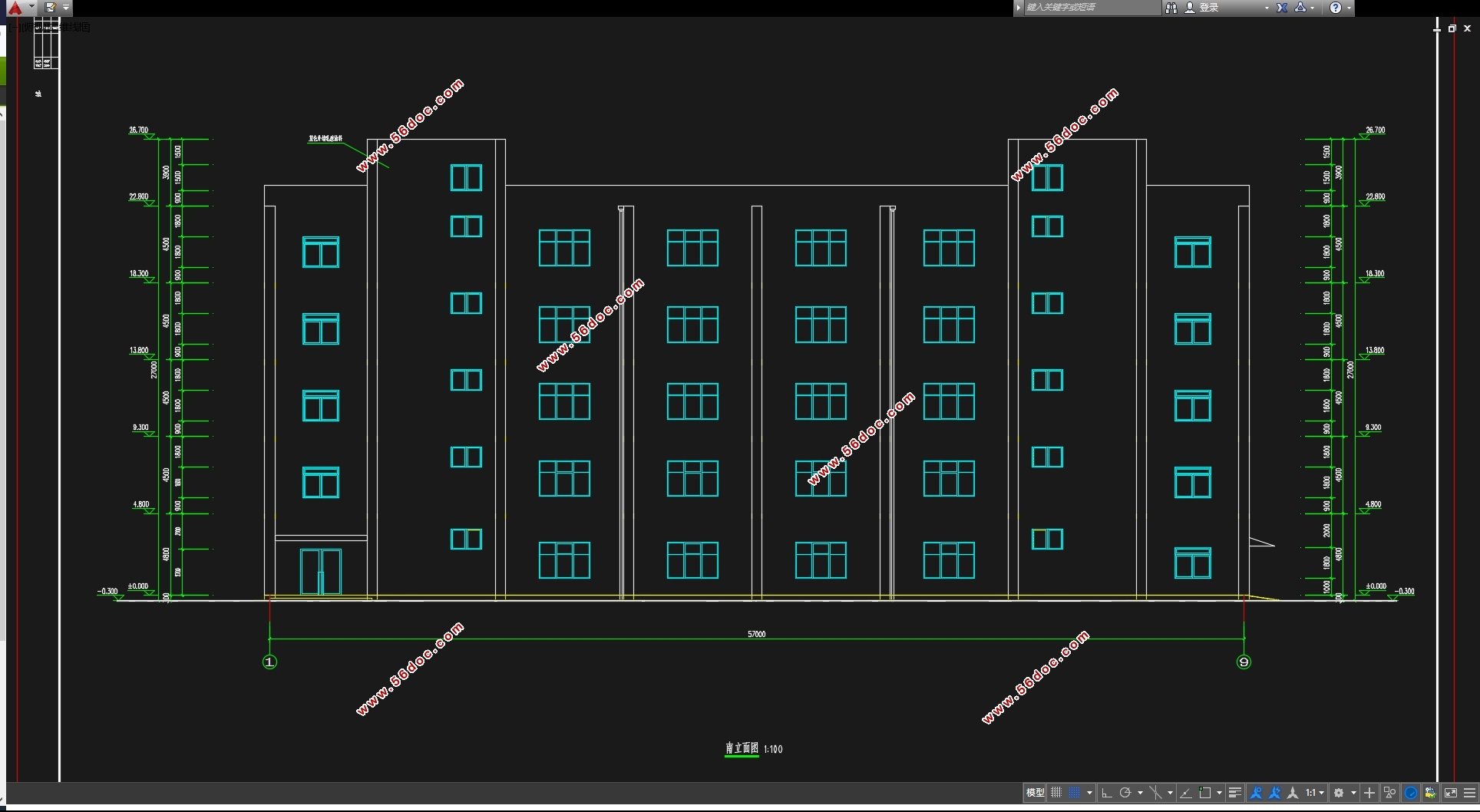
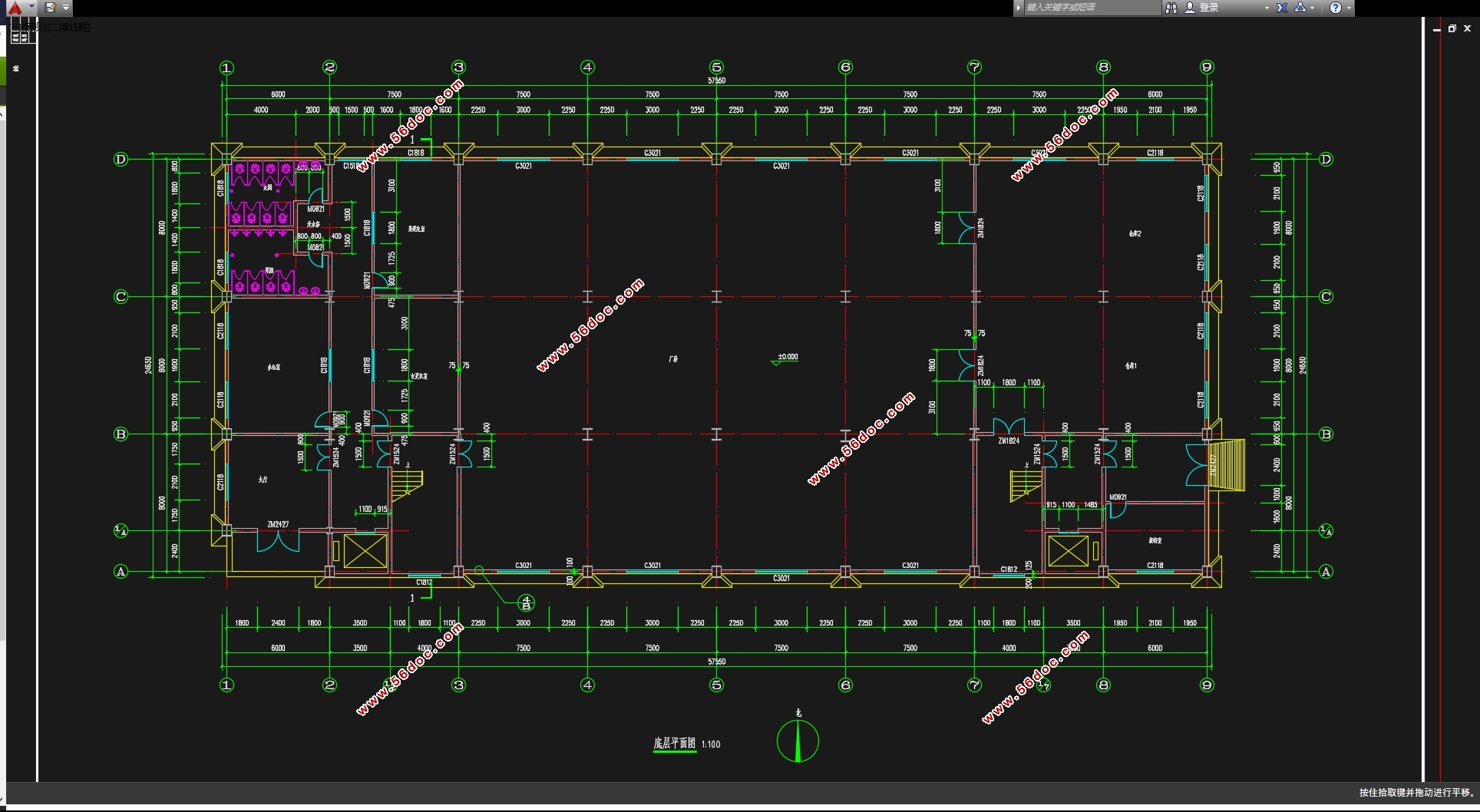
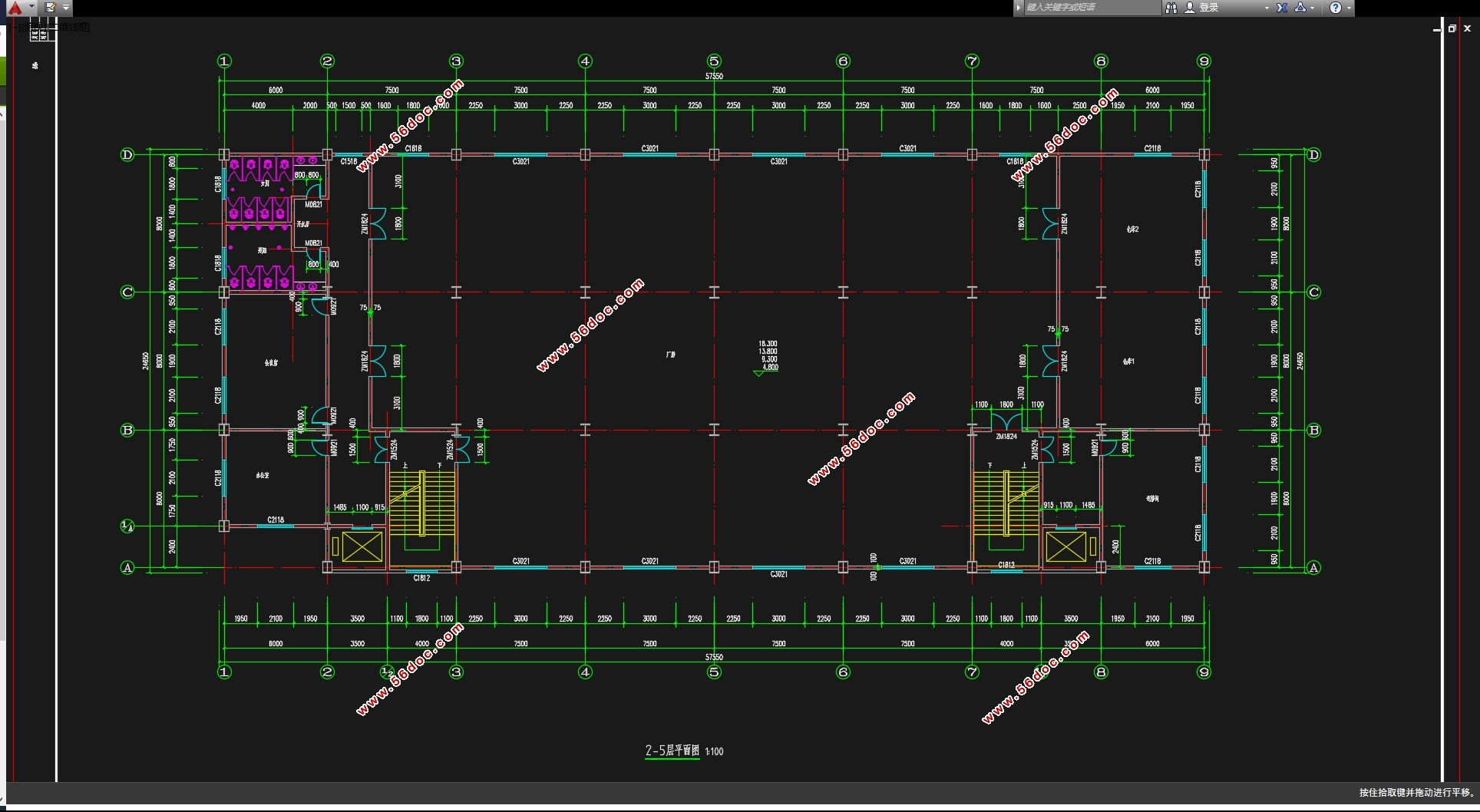
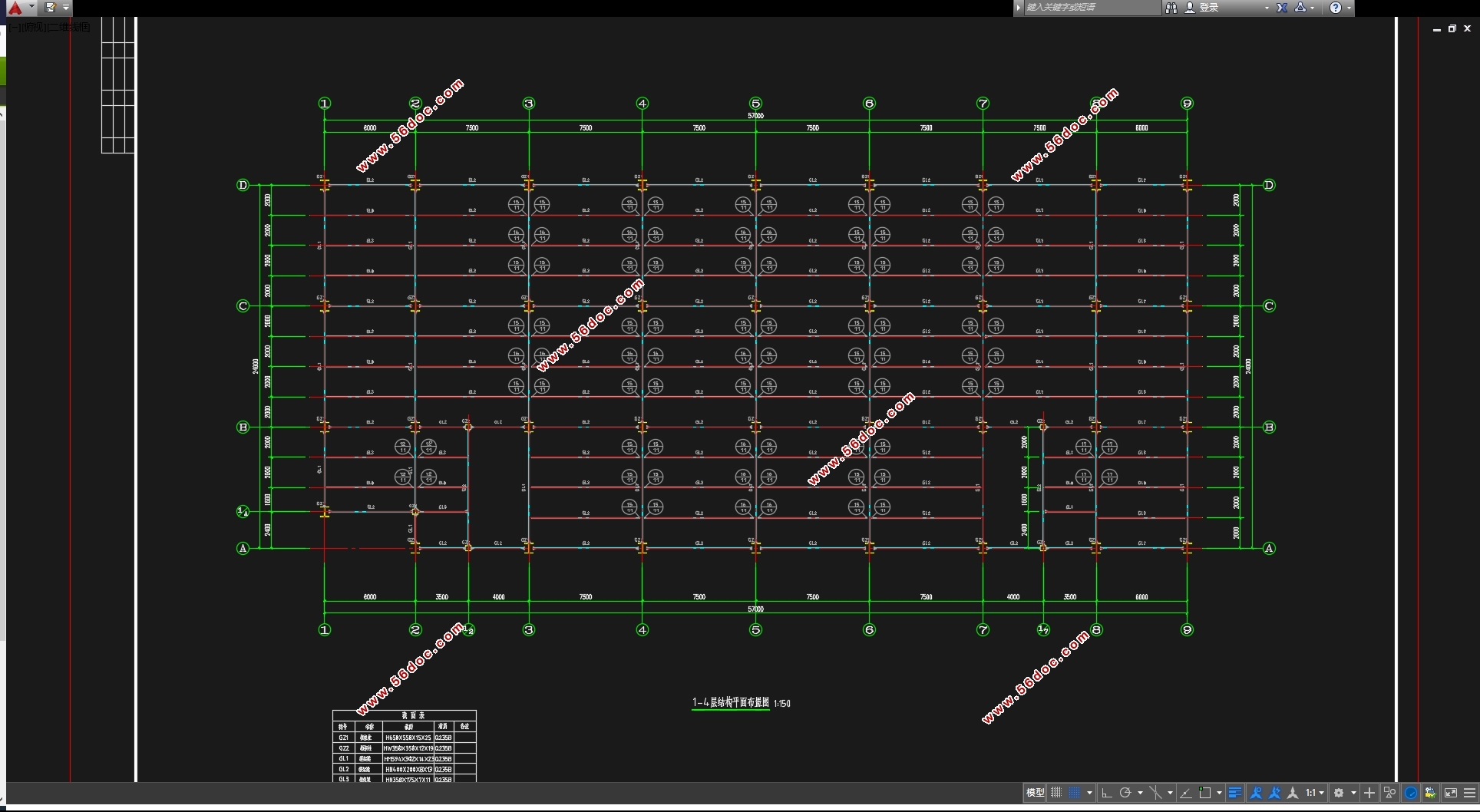
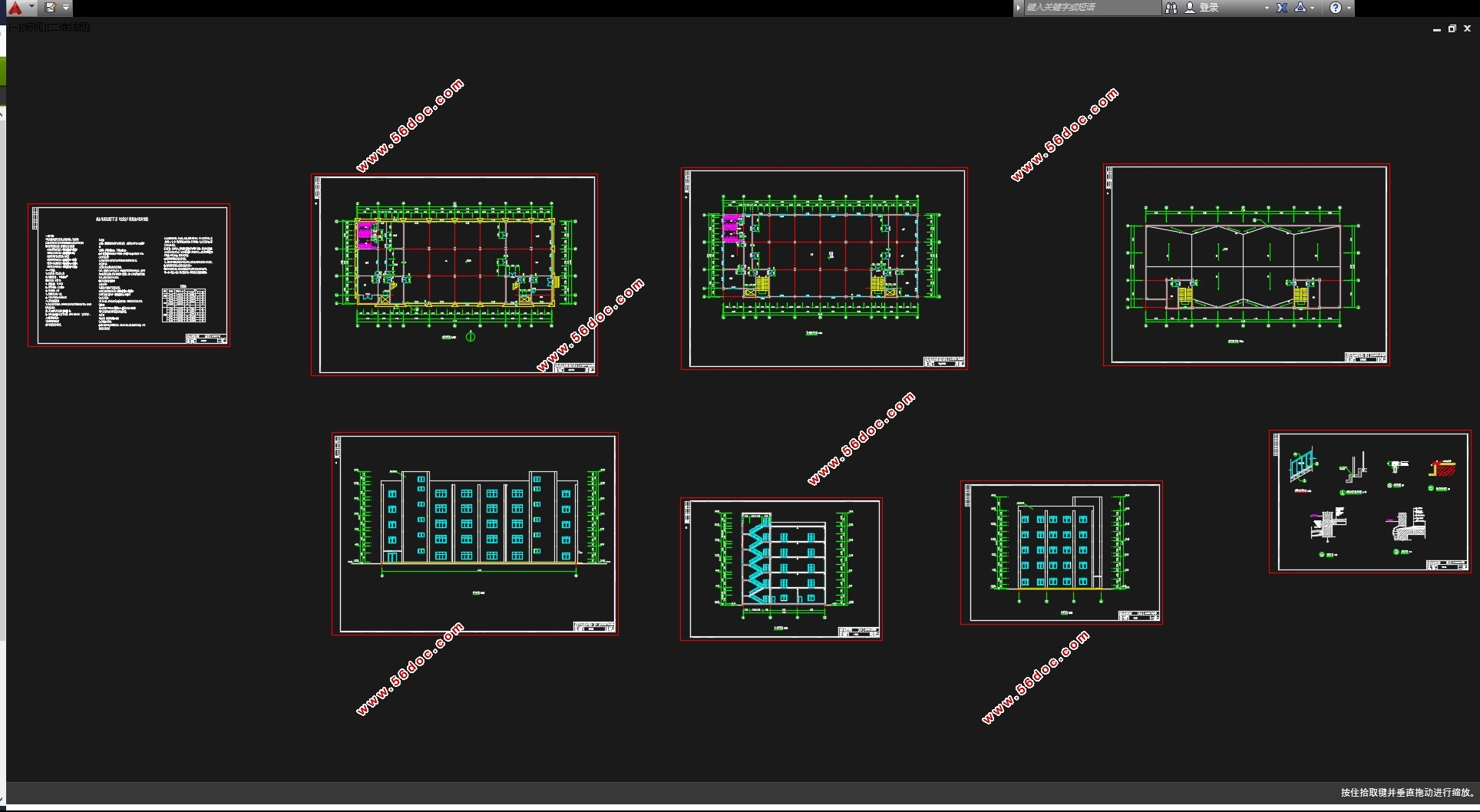
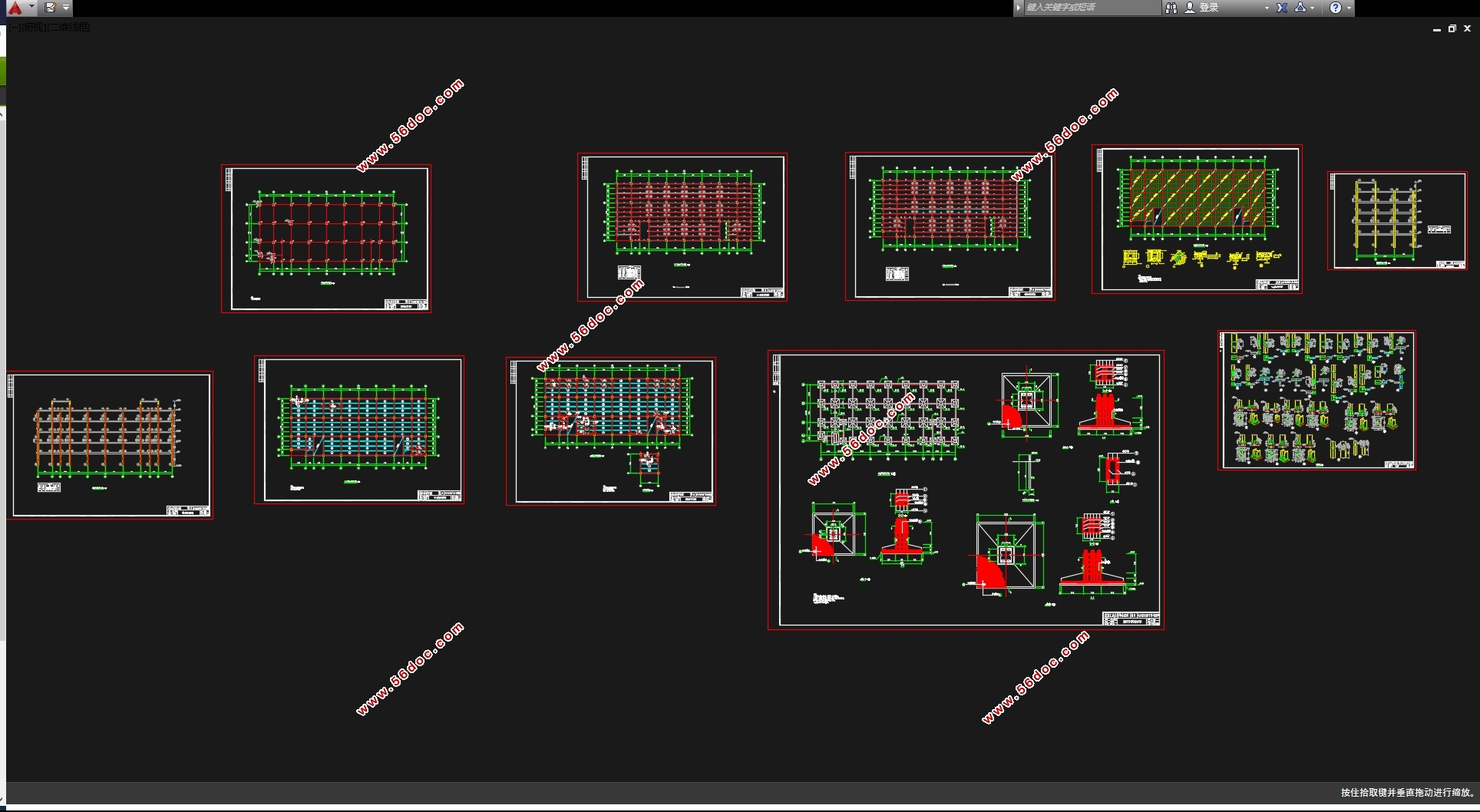
目 录
摘要 I
Abstract II
前 言 V
第1章 设计概况 1
1.1 工程概况 1
1.2 工程地质资料 1
1.3 本工程设计过程中所遵循的标准规范 1
1.4 施工技术条件 2
1.5 材料供应 2
第2章 建筑设计 2
2.1 平面设计 2
2.2 立面设计 3
2.3 剖面设计 4
2.4 防火设计与防火分区 4
第3章 结构选型与结构布置 4
3.1 结构选型 4
3.2 结构布置 5
3.3 材料的选用 6
3.4 初估构件截面尺寸 6
3.5 框架计算单元及计算简图 7
第4章 荷载计算 10
4.1 荷载标准值计算 10
4.2水平荷载作用下侧移计算 17
4.3 PKPM电算及分析 18
第5章 内力计算 41
5.1恒载标准值作用下的内力计算 41
5.2活载内力 48
5.4 风荷载内力计算 55
5.5 pkpm计算结果 60
第6章 内力组合 68
第7章 构件设计 90
7.1基本组合下的构件截面验算 90
7.2 地震作用组合下的构件截面验算 98
第8章 节点设计 101
8.1 梁柱节点 101
8.2 次梁与主梁节点 105
8.3 柱脚设计 107
第9章 组合楼板设计 110
9.1荷载及内力计算 110
9.2 压型钢板验算(施工阶段) 112
9.3 组合版验算(使用阶段) 112
9.4 斜截面抗剪 113
9.5 挠度计算 113
9.6 自振周期验算 114
第10章 楼梯设计 115
10.1荷载计算 115
10.2 内力计算: 116
第11章 基础设计 119
11.1 边柱设计 119
11.2 中柱设计 122
11.3 基础梁的设计 125
结束语 126
参考文献 127
致谢 128
|
